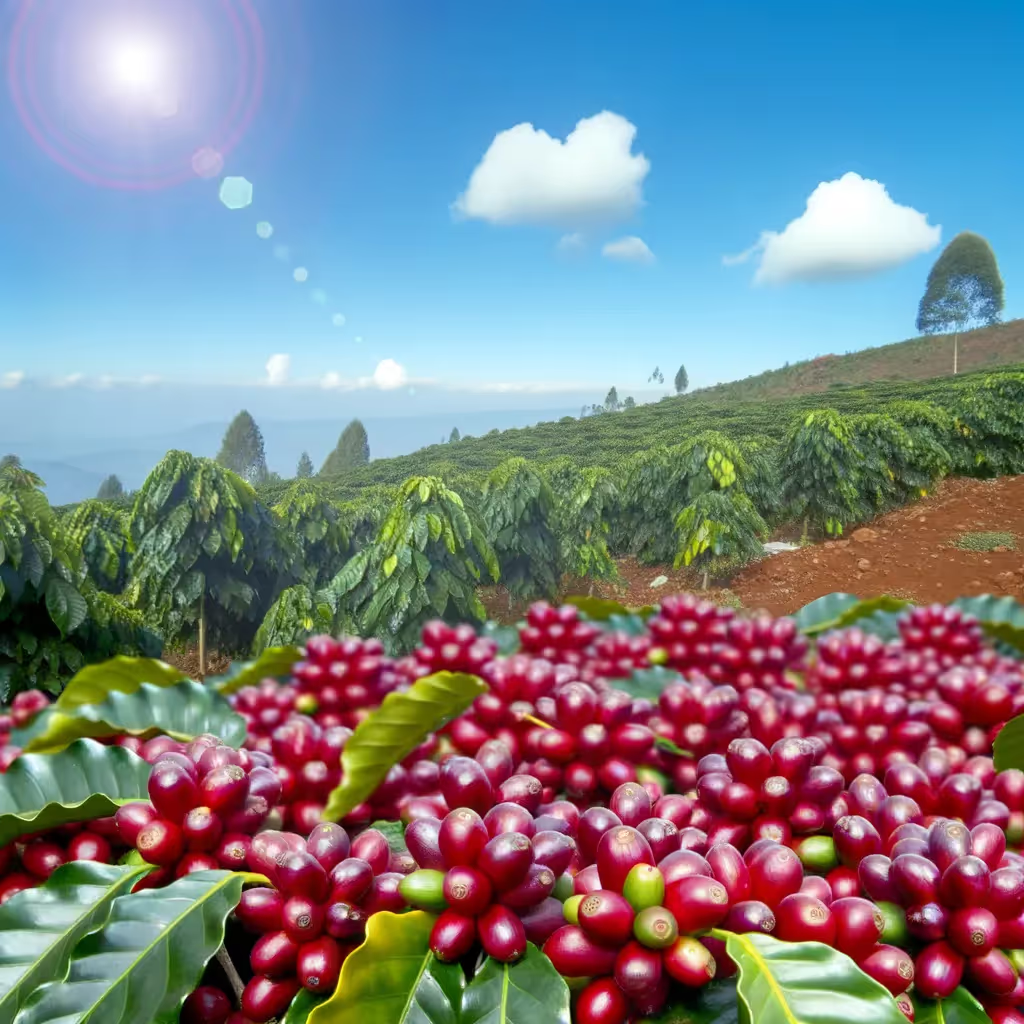Rwandan Coffee: A Guide to Africa's Hidden Gem
Rwanda is known as the 'Land of a Thousand Hills,' a nickname that perfectly describes its ideal coffee-growing landscape of high-altitude, rolling terrain.

Rwandan coffee is a hidden gem in the specialty coffee world, known for its bright acidity, complex flavors, and clean cup profile. Grown in the high-altitude regions of this small East African nation, Rwandan coffee benefits from rich volcanic soils and ideal growing conditions. The country's tumultuous history has given way to a thriving coffee industry, with smallholder farmers producing some of the most sought-after beans in Africa. Rwandan coffee is characterized by its tea-like body, citrus notes, and often floral or fruity undertones, making it a favorite among coffee enthusiasts seeking unique and vibrant flavors.
History
Coffee was introduced to Rwanda by German missionaries in the early 1900s. However, it wasn't until the 1930s that coffee cultivation became widespread under Belgian colonial rule. Following the devastating genocide in 1994, the coffee industry played a crucial role in Rwanda's economic recovery. The government, recognizing coffee's potential, invested heavily in improving quality and infrastructure. This led to the establishment of washing stations and cooperatives, elevating Rwandan coffee to specialty status. Today, Rwanda is renowned for producing some of Africa's finest coffees, with the industry supporting over 400,000 smallholder farmers and contributing significantly to the country's export earnings.

Rwandan
Local Coffee Customs
Economic Impact
Awards
- Cup of Excellence (2008)
Brewing Methods
- Pour-over
- French press
- Cold brew
Certifications
- Rainforest Alliance
- Fair Trade
Common Varieties
- Bourbon
- Typica
- Catuai
Flavor Profile
- Citrus
- Floral
- Red berries
Popular Brands & Roasters
- Intelligentsia Coffee
- Counter Culture Coffee
- Blue Bottle Coffee
Tourism & Culture
Coffee tourism is growing in Rwanda, with many cooperatives offering farm tours and cupping experiences. Visitors can explore the lush coffee-growing regions, learn about cultivation and processing methods, and enjoy breathtaking views of the country's rolling hills and mountains. Some popular destinations include the Nyungwe Forest region and the shores of Lake Kivu.
Future Outlook
Rwanda's coffee industry continues to grow and innovate, with a focus on improving quality and sustainability. The country is investing in research to develop disease-resistant varieties and promote climate-smart agriculture. As global demand for specialty coffee rises, Rwanda is well-positioned to capitalize on its unique terroir and processing methods, potentially becoming a major player in the high-end coffee market.
Roast Recommendations
- Light roast
- Medium roast
Sustainability Practices
- Shade-grown coffee cultivation
- Organic farming practices
Traditional Preparation Methods
- Rwandan coffee ceremony
- Boiled coffee with spices
Typical Harvest Season
Typical Processing Methods
- Washed
- Natural
- Honey




